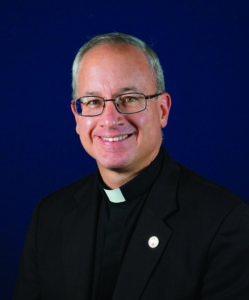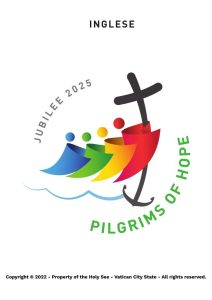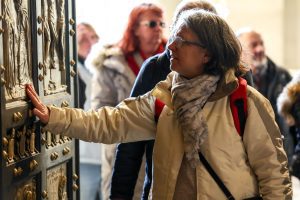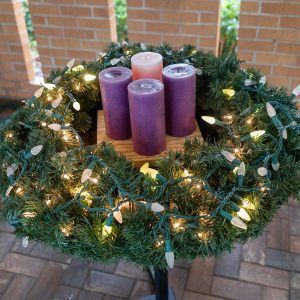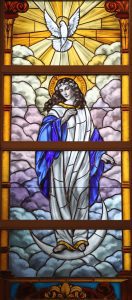The Blessed Virgin Mary’s path of faith and hope serves as an example to all.
This is just one of the reasons that the Universal Church dedicates the Month of May to the Blessed Virgin Mary. The month serves as an opportunity to reflect upon the season of the Liturgical Year which largely corresponds with the 50 days of Easter. Therefore, time should be taken to reflect on Our Lady’s participation in the Paschal mystery.
When Mary, the Immaculate handmaid of the Lord, gave her unequivocal “Yes!” to God, she followed the One who bestows universal favors, and the human race would never be the same. Mary trusted in the will of God to the fullest measure: “Blessed are you who believed that what was spoken to you by the Lord would be fulfilled (Luke 1:45).”
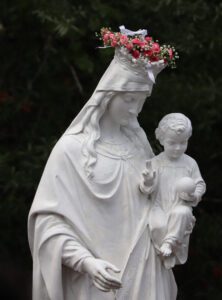
Bishop Frank J. Dewane said that through Mary’s example, we learn the important lesson from the Gospel of Luke (1:37-38), that nothing will be impossible for God. ‘Behold, I am the handmaid of the Lord. May it be done to me according to Your word.’ “Without God, we cannot fulfill His Mission. Our Lady understood that, so must each one of us. We must radically change our inner selves and have that same strength to do the will of the Lord.”
During Advent 2017, Bishop Dewane, in unity with the priests and faithful of the Diocese of Venice, formally consecrated the Diocese to Jesus through the Immaculate Heart of Mary. By this Act of Consecration, which coincided with the 100th anniversary of the apparitions of Our Lady of Fatima, the faithful entrusted the Diocese and its good works to Our Lady so as to fulfill more readily the will of her Divine Son for His Church.
Throughout his papacy, Pope Francis said Mary’s greatness does not consist in performing an extraordinary deed, but in silence and adoration; she placed Jesus at the center and bears witness to Him as Savior.
In 2018, the Holy Father established the Memorial of the Blessed Virgin Mary, Mother of the Church, which is celebrated the Monday after Pentecost (June 9). The Memorial reminds us how Jesus Himself, through an act of entrusting, willed that the divine maternity be extended to all men and women, that is, to the Church herself.
Pope Francis said, “the message of hope contained in God’s blessing was fully realized in a woman, Mary, who was destined to become the Mother of God, and it was fulfilled in her before any other creature.” The Holy Father added that “our journey of faith is the same as that of Mary, and so we feel that she is particularly close to us.”
May is also the time when young Catholics often receive the Sacrament of Holy Communion for the first time. Additionally, Parishes and Catholic schools in the Diocese have May Crowning ceremonies in which a statue of the Blessed Virgin Mary is adorned with a crown of flowers.
The Month of May is also to be used as a time to renew a commitment to praying the Mysteries of the Rosary (Joyful, Sorrowful, Glorious and Luminous). Of the 117 titles Our Lady has, she personally said during her appearance at Fatima, “I am the Lady of the Rosary,” and urged the shepherd children to “say the rosary every day to obtain peace in the world.”
Pope Francis had a strong devotion to praying the rosary, describing it as armor to be used in the spiritual battle we face each day. Many saints through the centuries have promoted the importance of the rosary as a key to one’s faith life. St. Francis de Sales said the greatest method of praying is to “Pray the Rosary.” St. Mother Teresa referred to the power of the rosary, calling everyone to pray it, to live and persevere.
Pope Paul VI wrote an encyclical in 1965 citing the Month of Mary devotion as a means of obtaining prayers for peace. May is the “month which the piety of the faithful has especially dedicated to Our Blessed Lady,” Pope Paul VI wrote, and May is the time for a “moving tribute of faith and love which Catholics in every part of the world [pay] to the Queen of Heaven. During this month Christians, both in church and in the privacy of the home, offer up to Mary from their hearts an especially fervent and loving homage of prayer and veneration. In this month, too, the benefits of God’s mercy come down to us from her throne in greater abundance.”
The Christian custom of dedicating the month of May to the Blessed Virgin arose at the end of the 13th century. In this way, the Church was able to Christianize the secular feasts which were meant to take place at that time. In the 16th century, books appeared and fostered this devotion.







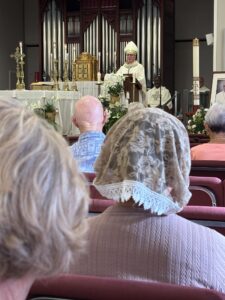
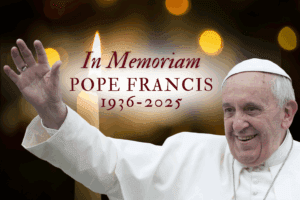 Subsequently, Parishes throughout the region have followed suit with many of the Masses in honor of Pope Francis, first the Masses of the Day within the Octave of Easter with the repose of the soul of Pope Francis as the intention. Following the Octave of Easter Parishes followed the Mass for the Dead, where the celebrating priests wore red vestments and prayer intentions were for the repose of the soul of Pope Francis.
Subsequently, Parishes throughout the region have followed suit with many of the Masses in honor of Pope Francis, first the Masses of the Day within the Octave of Easter with the repose of the soul of Pope Francis as the intention. Following the Octave of Easter Parishes followed the Mass for the Dead, where the celebrating priests wore red vestments and prayer intentions were for the repose of the soul of Pope Francis.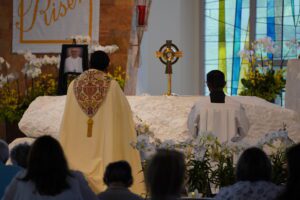
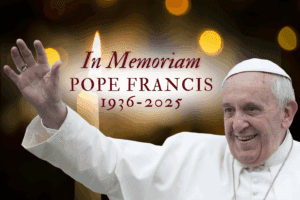
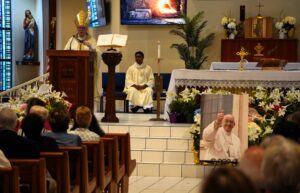
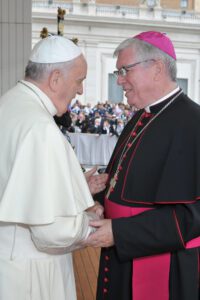
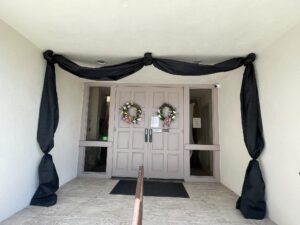
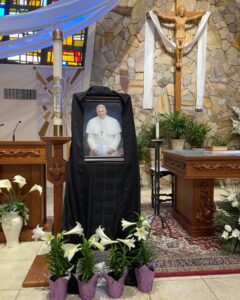
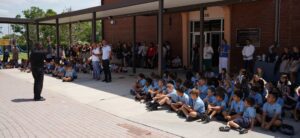
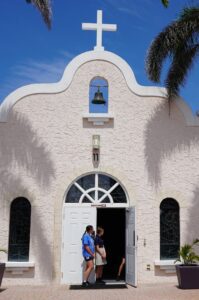
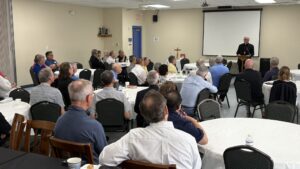
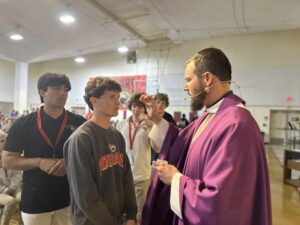
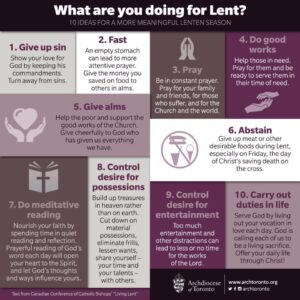 Fasting and abstinence is not just about food, or lack of it, but instead is really about sacrifice for the benefit of our spiritual lives – a fasting from sin. Sacrifice and self-denial should not be viewed as something to lament but instead should be viewed as an opportunity to remove anything that distracts us from Jesus Christ and a reception of grace. Fasting and abstinence are about spiritual conversion and renewal, not solely about meat and no food.
Fasting and abstinence is not just about food, or lack of it, but instead is really about sacrifice for the benefit of our spiritual lives – a fasting from sin. Sacrifice and self-denial should not be viewed as something to lament but instead should be viewed as an opportunity to remove anything that distracts us from Jesus Christ and a reception of grace. Fasting and abstinence are about spiritual conversion and renewal, not solely about meat and no food.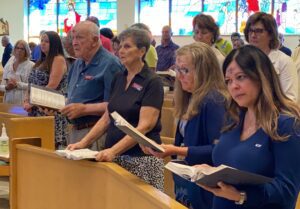
 The third pillar of Lent, almsgiving, is coupled in the Catechism with self-denial. While often mentioned as the last of the three traditional pillars of the Lenten observance, it is certainly not the least of the three and is often completely misunderstood. The Church’s expression of almsgiving is an act of self-denial, or an expression of charity and assistance extended to the needy.
The third pillar of Lent, almsgiving, is coupled in the Catechism with self-denial. While often mentioned as the last of the three traditional pillars of the Lenten observance, it is certainly not the least of the three and is often completely misunderstood. The Church’s expression of almsgiving is an act of self-denial, or an expression of charity and assistance extended to the needy.